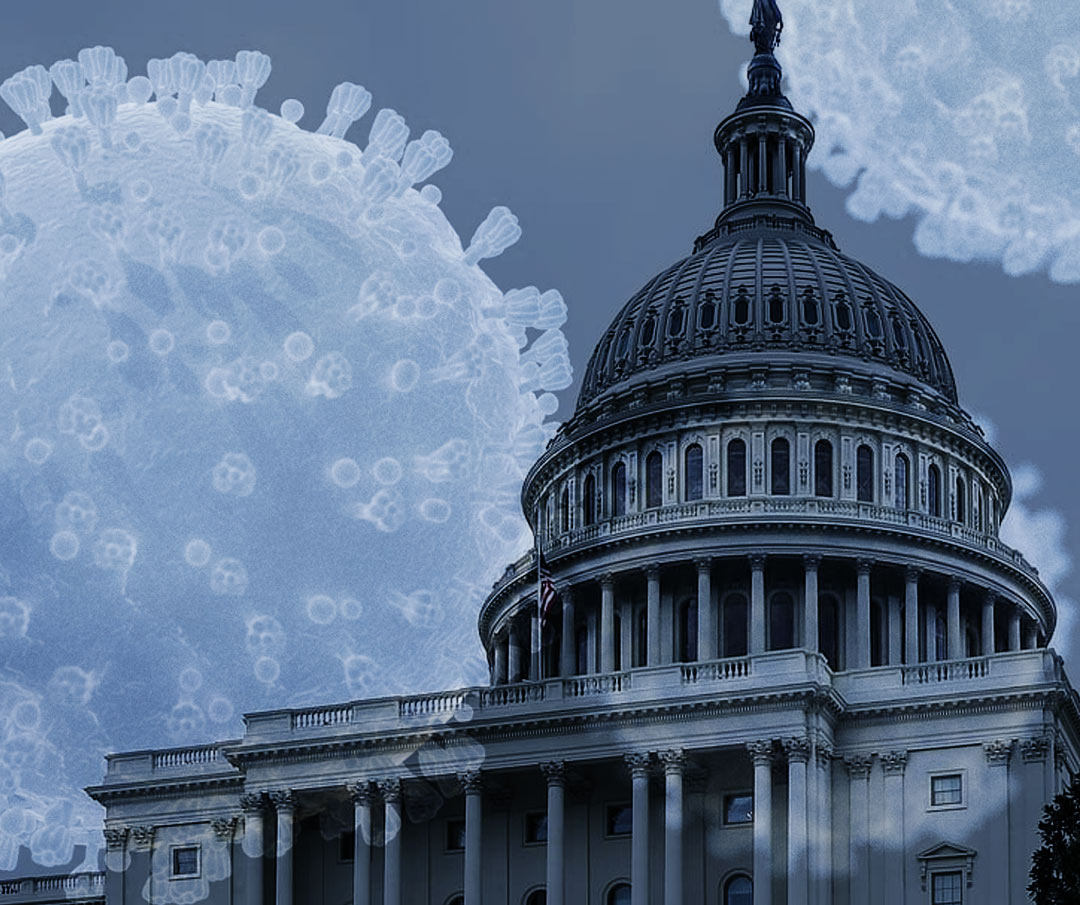They used to say that March comes in like a lion and leaves like a lamb. Not March of 2020. Thirty days ago, little did we know the month we’d be enduring. Two new laws have been enacted to calm the struggling economy in response to the pandemic of the Coronavirus, helping both employers and employees with a safety net of benefits. We will go over the specific items that relate to pension and payroll issues explained below.
The Families First Coronavirus Response Act, signed on March 18, 2020 and scheduled to take effect on April 1, 2020 provides benefits for employees that need to take time off to care for themselves or family members due to COVID-19, without worry of a loss of income. The law requires employers with fewer than 500 employees to offer fully paid sick leave for up to 10 days, if:
1) The employee is subject to a federal, state or local quarantine or isolation order related to COVID-19.
2) The employee has been advised by a healthcare provider to self-quarantine due to COVID-19.
3) The employee is experiencing symptoms of COVID-19 and is seeking a medical diagnosis.
Employers must provide paid leave at 100% of the employee’s regular rate of pay, up to $511 per day and $5,110 in total. In other situations, employers must provide paid sick leave at two-thirds of the employee’s regular rate of pay, up to $200 per day and $2,000 total, if:
1) The employee is caring for an individual who
a. Is subject to a federal, state, or local quarantine or isolation order related
to COVID-19, or
b. Has been advised by a healthcare provider to self-quarantine due to
COVID-19.
2) The employee is caring for a child whose school or childcare provider has been closed or is otherwise unavailable due to COVID-19 precautions.
3) The employee is experiencing any other symptoms similar condition specified by the Secretary of Health and Human Services in consultation with the Secretary of the Treasury and the Secretary of Labor.
The law further expanded the Family Medical Leave Act to provide for up to 12 weeks of job-protected leave, 10 weeks of which would be paid, for any employee unable to work or telework because they have to care for a child under the age of 18 whose school or care provider is made unavailable for reasons related to COVID-19. This expansion requires the employee to be paid at two-thirds regular pay, up to $200 per day and $10,000 total, after the first 10 days. Those first 10 days are still unpaid, although they may be paid through accrued vacation, personal or sick leave.
The law provides refundable payroll tax credits to reimburse the employer for these costs. The tax credit applies to wages the employer pays through December 31, 2020.
Keep in mind, unless your Plan Document specifically provides otherwise, paid sick leave is eligible for 401(k) contributions, pension credits, matching and other similar employer contributions.
The Coronavirus, Aid, Relief and Economic Security (CARES) Act, signed into law on March 27, 2020, made sweeping changes to pension and 401(k) plans as well:
1) Coronavirus Distributions – The CARES Act waives the 10% early withdrawal penalty tax on withdrawals up to $100,000 from a retirement plan or IRA for any individual diagnosed with COVID-19, whose spouse or dependent is diagnosed, or is experiencing financial difficulties as a result of being quarantined, furloughed, laid off, having hours reduced or unable to work due to lack of child care due to COVID-19. Those individuals are permitted to pay tax on the income from the distribution over a three-year period, and they may repay the distribution to the plan over the next three years. The repayments would not be subject to the individual retirement plan contributions limits, and the individual can apply for a tax deduction for the taxes they will have paid as a result of the premature distribution.
2) Plan Loans – The CARES Act increases the current retirement plan loan limits to the lesser of $100,000 or 100% of the participant’s vested interest, and any existing loans with a repayment due date of March 27, 2020 through the end of the year can delay their loan repayments for up to one year.
3) Required Minimum Distributions – The Act waives required minimum distributions (RMDs) for defined contribution plans for the 2020 calendar year. Note, this is only for 401(k) 403(b), 457(b), profit sharing or money purchase pension plans. Defined Benefit Plans, including Cash Balance plans, are not exempt from the requirement. Although not considered a corporate plan, IRA holders may waive the RMD for 2020 as well.
4) Single Employer Defined Benefit Funding Rules – in general, pension contributions are due by September 15th, or 8 ½ months after the end of the plan year for minimum funding purposes. The CARES Act delays that required due date until January 1, 2021.
5) Expansion of the Department of Labor – as somewhat of a catch-all provision, the Act expands the DOL authority to change or postpone certain deadlines under ERISA. While not specific, this would generally allow limited changes without legislative acts in the future.
As regulations and further legislation is passed, EJReynolds will keep you informed and up to date. We are taking all necessary precautions and monitoring the situations, but we are here for you and want to assure you we will continue to provide the level of service you have come to expect. We hope you, your families and circle of friends are and remain healthy. We will get through this, one day at a time.


